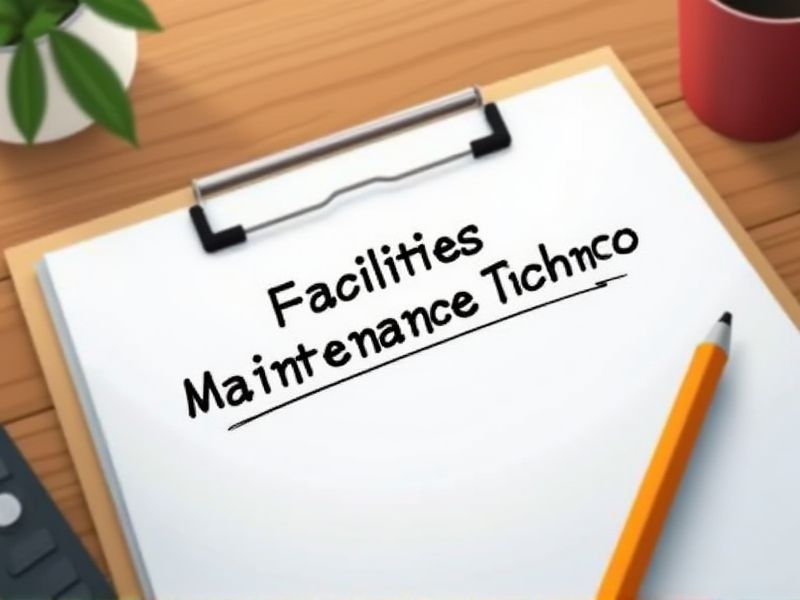
Facilities Maintenance Technicians manage diverse tasks requiring specialized skills, necessitating certifications to ensure proficiency and quality. Recognized certifications validate expertise in handling essential systems like HVAC, electrical, and plumbing, which enhances safety and efficiency. Obtaining specific certifications can increase job competitiveness and career advancement opportunities. Here are some key certifications that can be vital for Facilities Maintenance Technicians.
EPA Section 608 Certification
Facilities Maintenance Technicians often handle refrigeration and air conditioning systems, which contain refrigerants regulated by environmental laws. The EPA Section 608 Certification ensures these technicians understand how to safely manage refrigerants to prevent unlawful releases into the atmosphere. Without proper certification, technicians risk contributing to ozone layer depletion through incorrect handling. Compliance with this certification helps facilities avoid legal penalties and supports environmental sustainability efforts.
OSHA 10/30 Certification
Obtaining OSHA 10/30 Certification ensures Facilities Maintenance Technicians are knowledgeable about workplace safety standards, which reduces the likelihood of accidents. Employers are often required by law or policy to adhere to OSHA guidelines, making this certification a practical necessity for compliance. Enhanced safety practices can lead to fewer disruptions in operations, increasing overall productivity and reducing liabilities. Demonstrating proficiency in OSHA regulations can make technicians more competitive in the job market.
Certified Facility Manager (CFM)
Certified Facility Managers (CFM) bring a structured approach to facilities management, improving operational efficiency. Their expertise ensures compliance with industry standards and regulations, reducing risks associated with maintenance tasks. Their strategic planning capabilities enable long-term cost savings by optimizing resource allocation. They enhance team coordination and communication, resulting in more effective maintenance outcomes.
Certified Maintenance & Reliability Technician (CMRT)
Certified Maintenance & Reliability Technician (CMRT) certification enhances the technical skills of Facilities Maintenance Technicians, leading to improved efficiency in maintenance tasks. It ensures technicians are equipped with the latest knowledge and best practices, reducing downtime and operational costs. Facilities that employ CMRT-certified technicians often experience increased reliability and lifespan of equipment. CMRT certification demonstrates a commitment to professional development, fostering trust and credibility within the organization.
NICET Level I Certification
Obtaining the NICET Level I Certification can validate a Facilities Maintenance Technician's foundational skills and theoretical knowledge. This certification enhances their credibility and demonstrates a commitment to maintaining industry standards. Employers may prefer or require certified technicians as it indicates preparedness to adhere to safety and operational protocols. Achieving this certification could also lead to improved job opportunities and career advancements within the facilities maintenance sector.
Building Operator Certification (BOC)
Facilities Maintenance Technicians with Building Operator Certification (BOC) significantly improve energy efficiency, resulting in cost savings for building operations. BOC-trained technicians gain enhanced competency in diagnosing and addressing technical issues, which reduces equipment downtime. They receive up-to-date knowledge of sustainable practices, aligning facilities with environmental regulations and standards. BOC credentials can elevate a technician's employment prospects, reflecting a verified commitment to professional development and education.
NATE (North American Technician Excellence) Certification
Facilities Maintenance Technicians with NATE certification often experience enhanced job opportunities due to their validated expertise in HVAC systems. This certification provides employers with assurance of a technician's competence, leading to increased trust in their skills. As a result, certified technicians can expect higher salaries compared to their non-certified counterparts. NATE certification also ensures that technicians stay updated with industry standards, reducing the likelihood of errors and system failures.
Certified Energy Manager (CEM)
A Certified Energy Manager (CEM) enhances the efficiency of facilities by identifying and implementing energy-saving practices. Facilities Maintenance Technicians benefit from CEM expertise as it equips them with the necessary skills to optimize energy use, reducing operational costs. Incorporating a CEM ensures regulatory compliance with energy standards, minimizing potential fines. CEM knowledge aids in the deployment of innovative technologies, improving overall system performance and sustainability.
Facility Management Professional (FMP) Certification
The Facility Management Professional (FMP) Certification enhances the expertise and skills of Facilities Maintenance Technicians, ensuring they are equipped to handle complex building systems efficiently. Possessing an FMP Certification can lead to increased job opportunities and higher earning potential because employers often prefer candidates with recognized certifications. Industry standards and best practices taught during FMP Certification help technicians reduce operational costs and improve maintenance strategies. Certification also builds credibility and demonstrates a commitment to professional development within the facilities management field.
Lean Six Sigma Green Belt Certification
Obtaining a Lean Six Sigma Green Belt Certification equips a Facilities Maintenance Technician with the ability to streamline processes, resulting in reduced downtime and improved operational efficiency. This certification provides the knowledge to identify waste and defects in maintenance procedures, leading to cost savings and enhanced resource management. Facilities that operate with lean principles often experience increased equipment reliability, minimizing emergency repair needs. The structured methodology promotes a culture of continuous improvement, vital for adapting to facility demands and ensuring maintenance activities are proactive rather than reactive.
Summary
By obtaining certifications, you can significantly enhance your skills and credibility as a Facilities Maintenance Technician. Certifications often lead to increased job opportunities and potential for higher income. Employers may prioritize certified technicians, valuing their validated expertise. You can also expect to experience improved efficiency and reduced errors in daily maintenance tasks.
